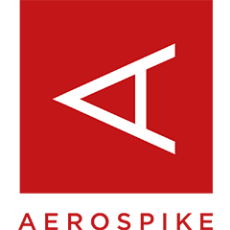Compare Products

|

|
Features Aerospike key-value store (KVS) operations associate keys with a set of named values. On cluster startup, Aerospike configures policy containers—namespaces (RDBMS databases)—which control the retention and reliability requirements for a set of data. Namespaces are divided into sets (RDBMS tables) and records (RDBMS rows). Each record has a unique indexed key, and one or more bins (RDBMS columns) that contain the record values.
Aerospike supports numerous data types used for bin values, as arguments, and as UDF return values.
Aerospike allows value-based queries using secondary indexes, where string and integer bin values are indexed and searched using equality (string or numeric) or range (numeric) filters.
User-Defined Functions (UDFs) extend the functionality and performance capabilities of the Aerospike Database engine.
In Aerospike, the aggregations framework allows fast, flexible query operations. Similar to MapReduce systems, aggregation emits results in a highly parallel fashion.
Aerospike supports large data types (LDTs) that allow individual record bins to efficiently store large collections of elements.
In Aeropike, you can use list data types when dealing with a size-bound list residing in a single bin. List operations allow server manipulation (such as adding or removing an item) without having to read and replace the entire bin value.
Aerospike supports Geospatial store, index, and query.
|
Features * High throughput, low latency, cross process, persisted key value store.
* Supports very high update rates by only replicating the latest value.
* Off heap data storage, with micro second latency.
* Designed to be used in Java, in a pause less, garbage free manner.
* Easy to adopt and open source based on the ConcurrentHashMap.
* Better utilizes your existing hardware by offering vertical scalability.
* UDP support for high fan out.
* TCP connectivity.
* Concurrent writers on one machine using one copy in memory.
* Concurrent multi-master writers across machines, with a reconciliation process.
* Multiple readers with TCP and UDP replication.
* Resilient writes (if a process dies, the last write is not lost.)
* Entirely embedded, you don’t need any additional processes.
|
LanguagesC Java VB.NET Perl Python Ruby Other |
LanguagesC Java |
Source TypeClosed
|
Source TypeClosed
|
License TypeProprietary |
License TypeProprietary |
OS Type |
OS Type |
Pricing
|
Pricing
|
X
Compare Products
Select up to three two products to compare by clicking on the compare icon () of each product.
{{compareToolModel.Error}}Now comparing:
{{product.ProductName | createSubstring:25}} X